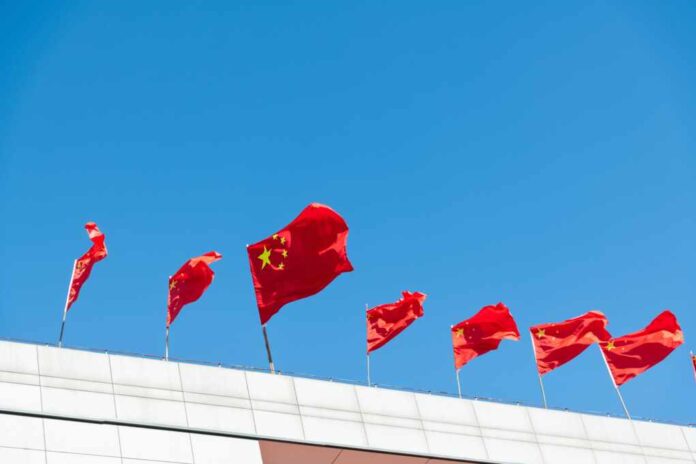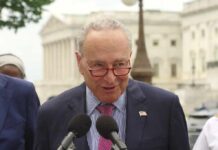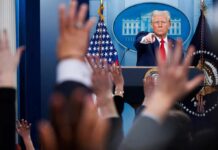
A PhD student from Wuhan, China, has been arrested for allegedly smuggling biological samples into the U.S., marking the third Chinese national charged in a widening investigation at the University of Michigan.
At a Glance
- Chengxuan Han, a PhD candidate from Wuhan, is accused of smuggling roundworm-related biological materials into a University of Michigan laboratory
- Han allegedly sent four concealed packages containing biological materials in 2024-2025 and made false statements to U.S. Customs officials
- This is the third case in a week involving Chinese nationals smuggling biological materials through Detroit Metropolitan Airport
- U.S. Attorney Jerome Gorgon described the smuggling operations as an “alarming pattern that threatens our security”
- On the same day as Han’s arrest, another Chinese national pleaded guilty to exporting firearms and military items to North Korea
Details of the Biological Smuggling Case
Chengxuan Han, a PhD student at the College of Life Science and Technology in Huazhong University of Science and Technology in Wuhan, was arrested after allegedly smuggling biological materials into the United States. According to federal authorities, Han sent four packages containing concealed biological material related to roundworms to a laboratory at the University of Michigan between 2024 and 2025. The suspect arrived at Detroit Metropolitan Airport on a J1 visa when Customs and Border Protection officers conducted an inspection and found Han had deleted content from electronic devices just three days prior.
When interviewed by FBI and ICE agents, Han admitted to sending the packages and confessed to making false statements to CBP officers. This arrest is part of what appears to be a broader investigation into the illegal transport of biological materials. Just days earlier, two other Chinese nationals were charged with similar offenses involving the smuggling of Fusarium graminearum, a biological pathogen that can cause devastating crop diseases and significant economic losses.
Pattern of Illegal Activities Raising National Security Concerns
The arrest of Han marks the third Chinese national accused of smuggling biological materials into Michigan within a single week, establishing what authorities describe as a troubling pattern. The previous case involved researcher Yunqing Jian and her boyfriend, Zunyong Liu, who were charged with smuggling a dangerous crop pathogen. Liu was caught with the pathogen hidden in his backpack at Detroit Metropolitan Airport in July, and electronic messages revealed discussions between the couple about smuggling seeds into the U.S.
“The alleged smuggling of biological materials by this alien from a science and technology university in Wuhan, China—to be used at a University of Michigan laboratory—is part of an alarming pattern that threatens our security”, U.S. Attorney Jerome F. Gorgon, Jr.
The FBI Counterintelligence Division led the investigation into these cases, highlighting the national security implications. The University of Michigan has condemned the actions of those involved and stated it had no Chinese government funding related to the accused researchers’ work. Jian was ordered to remain in custody as a flight risk, while her boyfriend Liu remains at large.
Parallel Case: North Korean Arms Smuggling Operation
On the same day as Han’s arrest, another concerning national security case developed when Shenghua Wen, also a Chinese national, pleaded guilty to exporting firearms and military items to North Korea. Wen came to the U.S. on a student visa in 2012 and remained illegally after it expired in 2013. According to court documents, North Korean officials directed Wen to obtain and smuggle firearms, sensitive technology, and ammunition from the U.S. to North Korea via China.
“The alleged actions of these Chinese nationals — including a loyal member of the Chinese Communist Party — are of the gravest national security concerns.”, U.S. Attorney Jerome Gorgon
Wen shipped at least three containers of firearms from California to China, which were then forwarded to North Korea in 2023. He falsified information to hide the illegal shipments and purchased a firearms business in Houston using approximately $2 million wired from North Korean contacts. Wen also acquired sensitive technology, including a chemical threat identification device and a handheld broadband receiver. He faces a maximum prison sentence of 20 years for violating the International Emergency Economic Powers Act and 10 years for acting as an illegal agent of a foreign government.
Diplomatic Tensions Rising
The Chinese Consulate General in Chicago has expressed concerns over the U.S. law enforcement’s actions in these cases, opposing what they characterize as political manipulation. The timing of these arrests comes amid already strained relations between the United States and China on issues ranging from trade to technology transfer and espionage concerns.
“The Chinese government has always required Chinese citizens overseas to strictly abide by local laws and regulations, while also safeguarding their legitimate rights and interests in accordance with the law.” ministry spokesperson Lin Jian
These cases highlight the challenges of regulating international scientific collaboration while protecting national security interests. They also underscore the ongoing concerns about unauthorized transfers of potentially sensitive biological materials and technology across borders. Han is scheduled to appear in federal court in Detroit as the investigation continues to unfold.

























